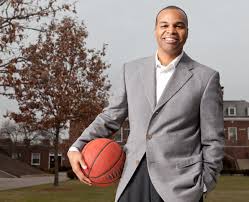Will the NCAA Remove the Racist Testing Barriers for Its Athletes?
For decades the National Collegiate Athletic Association has profited in the realm of billions from their student-athletes’ exploits on the gridiron, hardwood or diamond. In some cases, the institution would limit their ability to receive any compensation, or outright eliminating it altogether, leveling stiff penalties, such as in the case of former Memphis center James Wiseman. The highly regarded center decided to leave the University of Memphis after just a few games when he was handed a 12-game suspension for his family receiving $11,500 back in 2017 from coach Penny Hardaway, who was coaching Memphis East High School at the time. Rather than remain under what Wiseman called the “unfair” punishment, he decided to leave the school and enter the NBA Draft, where he is expected to be one of the top picks when it happens.

This comes at a time where student-athletes are beginning to take the reins of control back the institutions, such as having the NCAA pay back for years of using their likeness in such entities as Electronic Arts’ NCAA Football and NCAA Basketball video games. The O’Bannon case was a landmark one in which the organization had to finally address the elephant in the room, taking care of student athletes who bring in so much revenue to the college. Despite the outward appearance, many student-athletes struggle to make ends meet. When the state of California made the decision to make it easier for athletes to profit off of their likeness, it opened the door for a level of financial freedom they have not experienced in decades. In addition, the NCAA reached a $208.7 million settlement with its former athletes, with checks of at least $10,000 being sent to their homes in terms of compensation for their playing time.
While that is one issue that has finally reached a possible conclusion, there was still one other hurdle to climb, especially for minority athletes: how to get eligible to play in the first place.
The National Association of Basketball Coaches have sent a proposal to eliminate the SAT and ACT requirements as part of the NCAA’s initial eligibility process. The NABC’s Committee on Racial Reconciliation, formed last month by coaches Tommy Amaker (Harvard) and Frank Martin (South Carolina), is based upon addressing racism and social justice issues within collegiate environments.

“The NABC Committee on Racial Reconciliation believes that the SAT and ACT are longstanding forces of institutional racism and no longer have a place in intercollegiate athletics or higher education at large,” Amaker and Martin said in a joint statement. “This is an important step towards combating educational inequality in our country.”
Minorities comprise approximately 44% of all Division I student-athletes as of 2019, according to the NCAA Demographics Database.
In April, the NCAA Eligibility Center waived the standardized test score requirement for incoming freshman student-athletes in both Division I and Division II for the 2020-21 academic year because of the coronavirus pandemic.
Students who expect to graduate from high school in time to enroll in a Division I school this coming academic year will be academically eligible by earning a 2.3 grade-point average in the 10 NCAA-approved core courses, with a combined seven in English, math and science prior to the start of their senior year. There is a 2.2 GPA requirement in 10 NCAA-approved core courses for Division II schools.
Normally, the NCAA Eligibility Center uses a sliding scale for Division I to match SAT/ACT scores and core-course GPAs to determine eligibility. The sliding scale balances a student-athlete’s test score with his/her GPA. A low standardized test score requires a higher GPA to be eligible, and a low GPA requires a higher test score to be eligible.
The pandemic situation has made it even more difficult for students from low-income areas to qualify due to lack of access to SAT and ACT testing locations.
Elimination of the testing requirements would go a long way towards demonstrating that finally, black and brown students would not miss out on some of their greatest athletic years due to an unfair testing system that was never designed for them in the first place.



